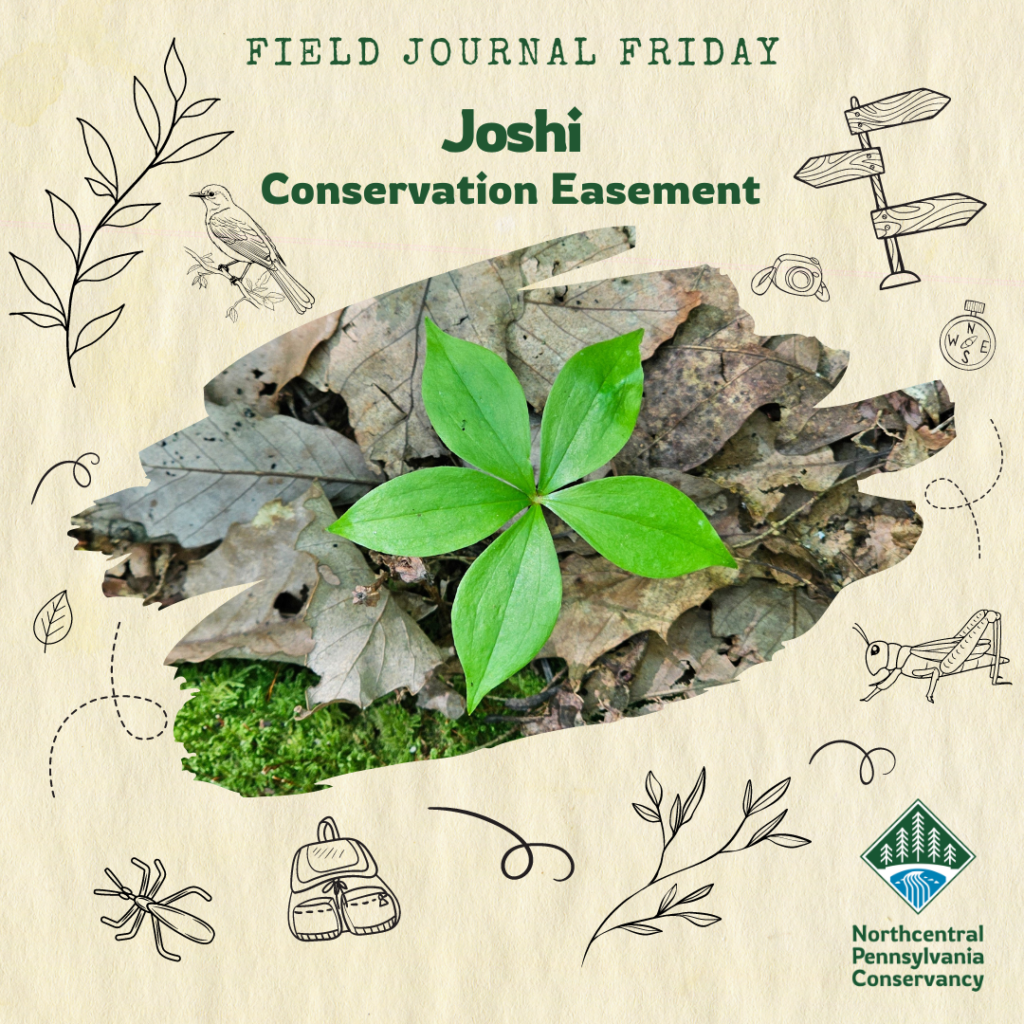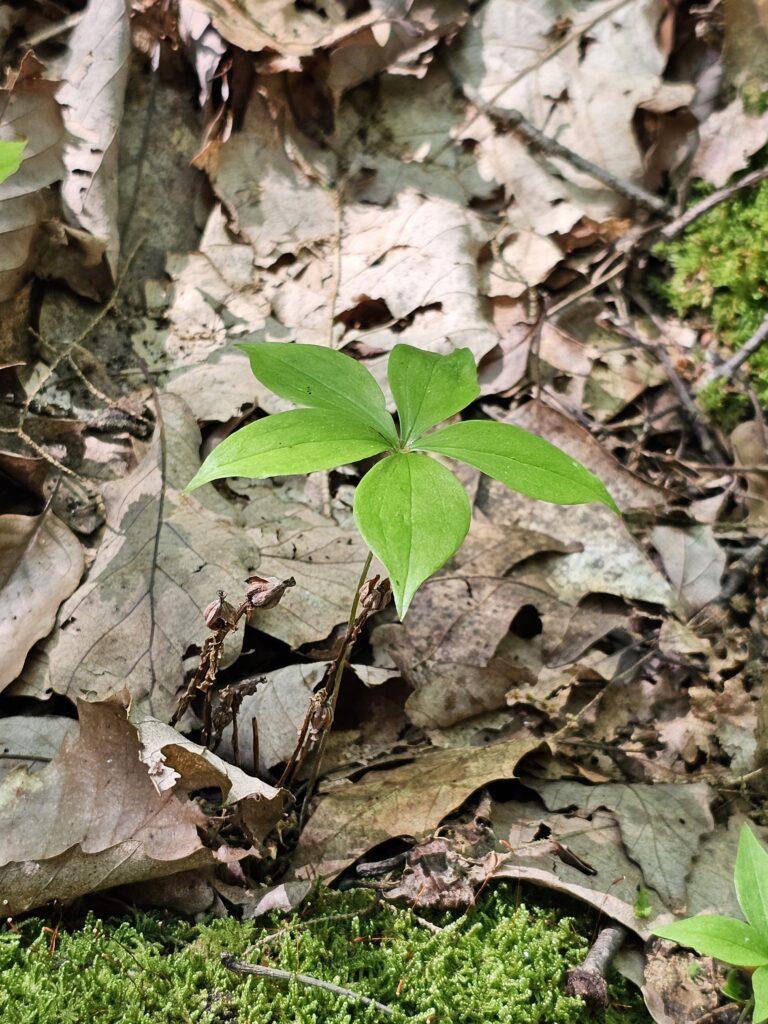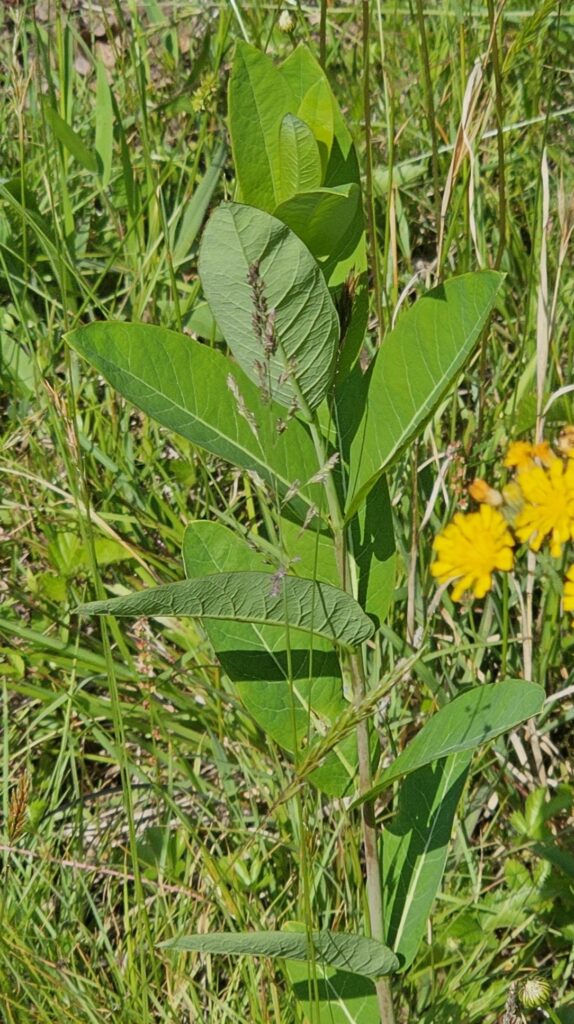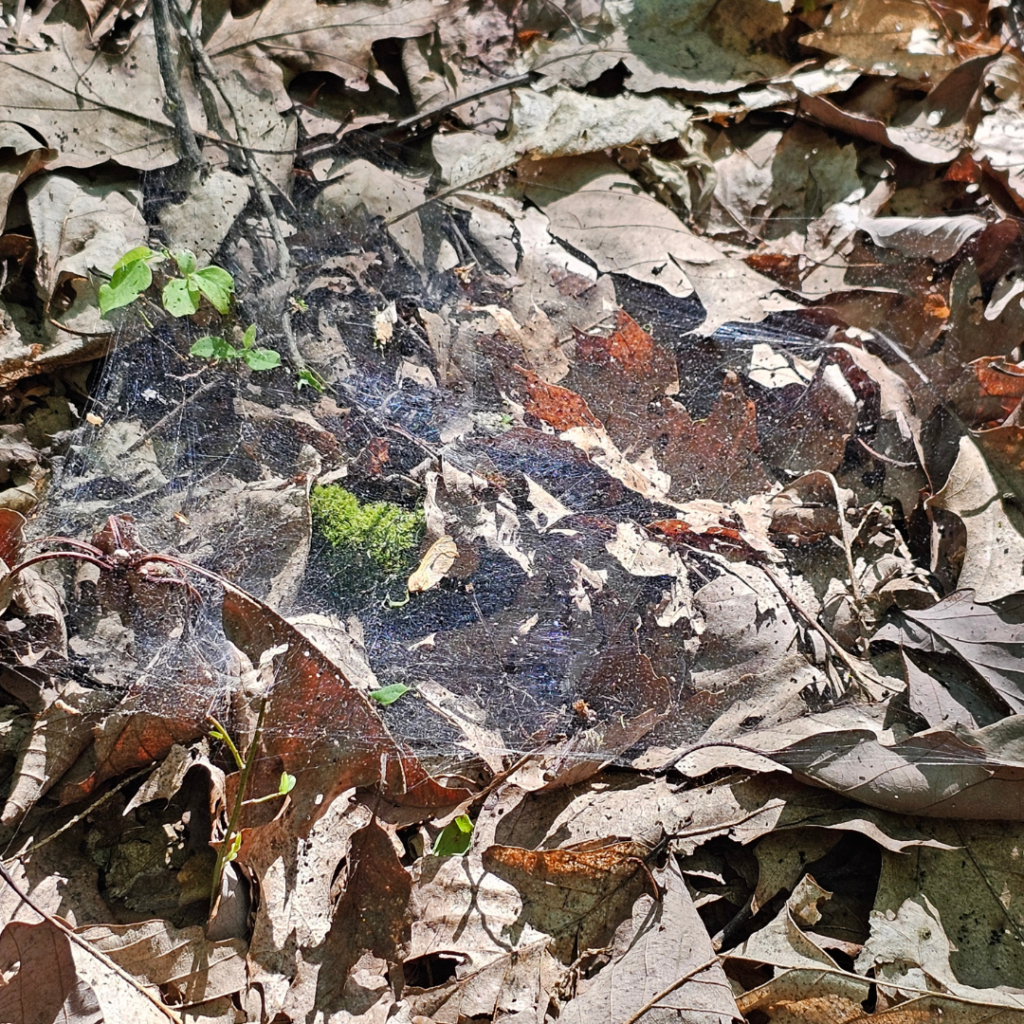
Today, we are exploring NPC’s Joshi conservation easement in Lycoming County. As you may recall from last week, this 87-acre property borders NPC’s Lyons Farm conservation easement. Connecting conserved lands is important because it creates large, continuous areas where animals and plants can live and move around freely. These connected areas help wildlife find food, shelter, and mates. Additionally, these connections help conserve the natural resources that keep the water and air clean for your communities.
Here are a few observations from Sara’s annual visit to the Joshi conservation easement.
Observation #1: Indian Cucumber
Indian cucumber (Medeola virginiana) is native to Pennsylvania and can be commonly found in the state’s forests. It thrives in moist, well-drained soils and shady environments, often under the canopy of mature hardwood trees. The cucumber part of the common name comes from the two to three-inch-long tuberous white root that smells and tastes like cucumbers. Native American tribes in PA traditionally gathered them as food and used the plant for its medicinal properties.

Observation #2: Common Milkweed
Common milkweed (Asclepias syriaca) is the only host plant for monarch caterpillars. Monarchs lay their eggs on common milkweed, and when those eggs hatch into caterpillars, they eat the leaves, which contain a compound that makes them toxic to their predators.

Observation #3: Web of a Grass Spider
Grass spiders tend to be fast and shy, making it uncommon for them to bite humans. The web of this native Pennsylvania arachnid is seen more often than the spider itself. As you could guess from the name, their webs are often found in the grass, weeds, and other ground cover, in a horizontal orientation.


